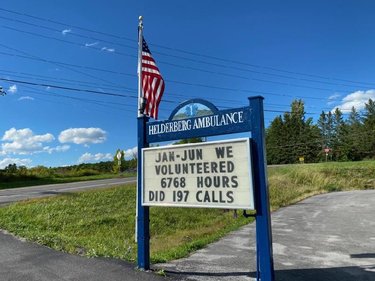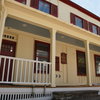Hilltown hearings set for first-responder tax-exemptions
HILLTOWNS — This month and next, most Hilltown residents will be able to weigh in with their thoughts on their towns and the Berne-Knox-Westerlo School District offering 10-percent tax exemptions to first responders within those respective tax districts.
New York State adopted a law last year that allows tax authorities like schools and towns to adopt these exemptions, with the aim of improving volunteerism for ambulance and fire organizations that are frequently struggling to attract and retain an adequate number of recruits as the state adds new, more intensive training requirements.
In the Hilltowns, ambulance services have shut down in recent years due to flagging numbers, and the remaining one, Helderberg Ambulance, has turned to the State University of New York system to attract student-recruits with the promise of a $5,000 scholarship per semester per student to keep its recruitment rate in line with its needs, as Captain Neal Hogan explained to The Enterprise late last year.
The town of Knox was the first Hilltown to adopt the exemption, doing so last month with four of five board members voting in favor; one councilman abstained because he is an active member of that town’s fire department.
Rensselaerville is holding a public hearing on the matter at its town board meeting on March 23 at 6:45 p.m. at the town hall.
The BKW Board of Education is holding a public hearing at its next meeting, on March 27 at 7 p.m. in the elementary school cafeteria.
Westerlo’s public hearing will be on April 4 at 6 p.m. at the town hall.
Berne has not scheduled a public hearing, but Supervisor Dennis Palow said at the town board’s March meeting that the topic would be on the agenda for April.
In addition to deciding whether or not to grant the exemption, these boards will have to decide how to apply it, which means figuring out what the service requirement will be and whether the exemption would be permanent for some senior volunteers.
Knox opted for the most lax requirements and most benefits available, requiring two years of service as opposed to the maximum of five, while offering permanent exemption to members who serve for 20 years. It also allows widows of first responders killed in the line of duty to claim the exemption.
The Westerlo Town Board appears to be proposing the same terms.
Before adopting the law, Knox Supervisor Russ Pokorny explained to the board and the audience that, assuming the annual median exemption based on the typical home value would be roughly $25 per volunteer, the impact on non-volunteers in the town, who would pick up the added tax burden, would be minimal.
“It’s just a little bit of encouragement, that’s all,” Pokorny told The Enterprise at the time. “Some recognition of their value.”


